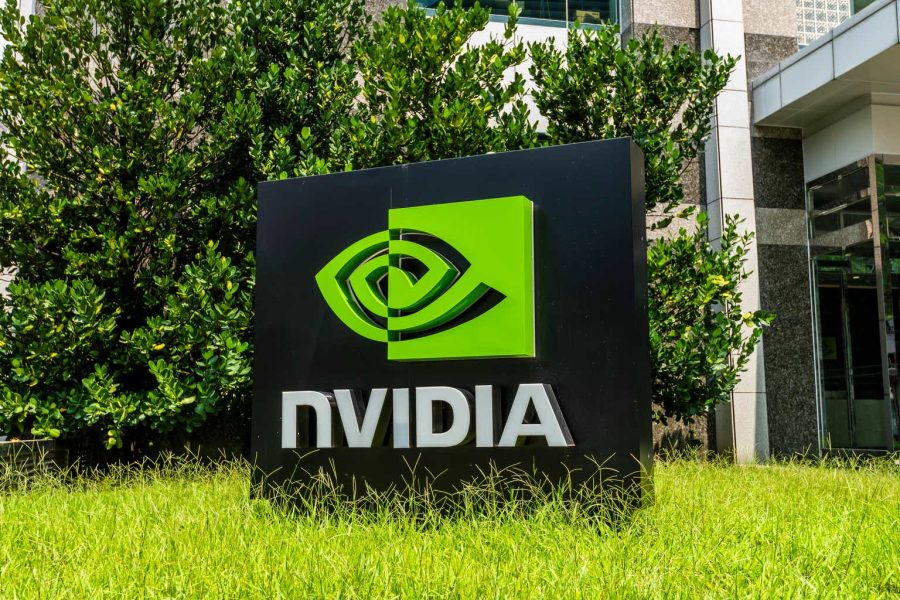July 14, 2024 This Week Top S&P 500 Gainers & Losers
Tesla: Time To Take Profits
Microsoft: The Q4 Results Should Surprise You
Tesla: Optimus And FSD Probably Won’t Save The Day
April 23, 2024 Maximizing Profits: When is the Right Time to Sell Your Business?
April 12, 2024 Improve Your Financial Status: A How-To Guide
April 12, 2024 How ZIM Integrated Container Tracking is Revolutionizing Global Trade
March 15, 2024 6 Best Growth Stocks To Buy Now According to Metatrader 5

Carnival (CCL) Stock Forecast for 2024–2028
Updated: July 26, 2024 (18:54)
Sector: Counsumer cyclicalThe share price of Carnival Corporation & Plc (CCL) now
50/200 Day Moving Average: $16.78 / $15.68
This figure corresponds to the Average Price over the previous 50/200 days. For Carnival stocks, the 50-day moving average is the support level today.
For Carnival stocks, the 200-day moving average is the support level today.
Are you interested in Carnival Corporation & Plc stocks and want to buy them, or are they already in your portfolio? If yes, then on this page you will find useful information about the dynamics of the Carnival stock price in 2024, 2025, 2026, 2027, 2028. How much will one Carnival share be worth in 2024 - 2028?
When should I take profit in Carnival stock? When should I record a loss on Carnival stock? What are analysts' forecasts for Carnival stock? What is the future of Carnival stock? We forecast Carnival stock performance using neural networks based on historical data on Carnival stocks. Also, when forecasting, technical analysis tools are used, world geopolitical and news factors are taken into account.
Carnival stock prediction results are shown below and presented in the form of graphs, tables and text information, divided into time intervals. (Next month, 2024, 2025, 2026, 2027 and 2028) The final quotes of the instrument at the close of the previous trading day are a signal to adjust the forecasts for Carnival shares. This happens once a day.
Historical and forecast chart of Carnival stock
The chart below shows the historical price of Carnival stock and a prediction chart for the next month. For convenience, prices are divided by color. Forecast prices include: Optimistic Forecast, Pessimistic Forecast, and Weighted Average Best Forecast. Detailed values for the Carnival stock price can be found in the table below.
Long-term forecasts by years.
Charting the Waters Ahead: A Close Look at Carnival Corporation’s Stock Forecast
In the ever-fluctuating world of the stock market, predicting the trajectory of a company’s shares is akin to navigating the high seas—a blend of art, science, and a touch of unpredictability. Within this complex landscape, Carnival Corporation (NYSE:CCL), a leading entity in the cruise line sector, presents a compelling case study. The company’s journey through the tempest of the COVID-19 pandemic and into the clearer skies of recovery sheds light on the intricate dance between external events and stock performance.
The Voyage to Recovery and Its Impact on CCL Stock Forecast
Carnival Corporation has charted a course of robust recovery in the aftermath of the pandemic, with record revenues and an impressive booking situation marking its fourth quarter. This rebound is a beacon of optimism for investors looking into CCL stock predictions. However, predicting CCL stocks with absolute accuracy remains a challenging endeavor. The company’s ventures to reduce its debt burden and achieve a state of breaking even—with real profits anticipated in 2024—serve as pivotal milestones. Yet, these achievements also underscore the unpredictability inherent in stock forecasts.
As we gaze into the horizon, several factors and events loom large over the CCL stock price prediction for 2025 and beyond. The continued momentum of bookings, especially with the company already having nearly two-thirds of its occupancy booked for 2024 at higher prices, promises a favorable wind. However, the shadow of past dilution and leverage, incurred during the pandemic, casts a long shadow. The journey toward full financial recovery and the possibility of unforeseen challenges in demand are pivotal elements that could steer CCL stock rates in unforeseen directions.
Given these dynamics, while optimism may color the Carnival cruise stock forecast, a cautious approach prevails. The blend of high expectations, operational recovery strides, and residual risks from the pandemic era make a definitive CCL stock buy or sell recommendation complex. As for the benefits of investing in Carnival cruise stock, the potential for recovery and growth exists, but it is tempered by an understanding of the voyage’s inherent unpredictability.
In conclusion, while the seas ahead show signs of promise for Carnival Corporation, investors navigating the CCL stock forecast should keep a keen eye on the horizon, ready to adjust sails as the winds of market conditions and operational performance change.
Carnival Corp. & PLC is a global cruise giant, ranking among the largest in the cruise industry. The company boasts a diverse portfolio with 20 subsidiary lines. In North America, these include well-known brands like Carnival Cruise Lines, Princess Cruises, Holland America Line, and Seabourn Cruise Line. Over in the United Kingdom, it operates P&O Cruises, Cunard Line, and Ocean Village. AIDA Cruises caters to the German market, Costa Cruises serves Southern Europe, and P&O Cruises Australia is based down under.
Carnival daily forecast for a month
| Date | Target | Pes. | Opt. | Vol., % |
|---|---|---|---|---|
| Jul 28 | 17.84 | 17.38 | 18.42 | 5.95 |
| Jul 29 | 18.05 | 17.89 | 18.44 | 3.07 |
| Jul 30 | 17.80 | 17.36 | 17.95 | 3.36 |
| Jul 31 | 17.67 | 17.43 | 17.88 | 2.55 |
| Aug 01 | 18.05 | 17.53 | 18.34 | 4.65 |
| Aug 02 | 18.46 | 18.17 | 18.61 | 2.44 |
| Aug 03 | 18.57 | 18.34 | 19.04 | 3.81 |
| Aug 04 | 18.57 | 18.35 | 19.03 | 3.68 |
| Aug 05 | 18.66 | 18.34 | 19.13 | 4.27 |
| Aug 06 | 18.62 | 18.43 | 19.00 | 3.11 |
| Aug 07 | 18.08 | 17.75 | 18.45 | 3.95 |
| Aug 08 | 18.49 | 17.96 | 18.90 | 5.23 |
| Aug 09 | 18.59 | 18.16 | 19.16 | 5.53 |
| Aug 10 | 19.15 | 18.92 | 19.76 | 4.45 |
| Aug 11 | 19.72 | 19.18 | 19.96 | 4.07 |
| Aug 12 | 19.61 | 19.38 | 19.76 | 1.98 |
| Aug 13 | 20.28 | 20.07 | 20.64 | 2.83 |
| Aug 14 | 20.55 | 20.17 | 20.87 | 3.46 |
| Aug 15 | 20.14 | 19.77 | 20.38 | 3.06 |
| Aug 16 | 20.25 | 20.05 | 20.70 | 3.23 |
| Aug 17 | 20.61 | 20.38 | 21.14 | 3.76 |
| Aug 18 | 20.52 | 19.99 | 20.71 | 3.61 |
| Aug 19 | 20.86 | 20.22 | 21.52 | 6.44 |
| Aug 20 | 21.59 | 20.93 | 22.24 | 6.27 |
| Aug 21 | 22.33 | 22.07 | 22.70 | 2.87 |
| Aug 22 | 23.09 | 22.61 | 23.41 | 3.55 |
| Aug 23 | 22.76 | 22.56 | 23.14 | 2.54 |
| Aug 24 | 22.31 | 22.10 | 22.79 | 3.15 |
| Aug 25 | 21.65 | 21.14 | 21.95 | 3.85 |
| Aug 26 | 21.77 | 21.50 | 22.46 | 4.45 |
Carnival Daily Price Targets
Carnival Stock Forecast 07-28-2024.
Forecast target price for 07-28-2024: $17.84.
Positive dynamics for Carnival shares will prevail with possible volatility of 5.620%.
Pessimistic target level: 17.38
Optimistic target level: 18.42
Carnival Stock Forecast 07-29-2024.
Forecast target price for 07-29-2024: $18.05.
Positive dynamics for Carnival shares will prevail with possible volatility of 2.976%.
Pessimistic target level: 17.89
Optimistic target level: 18.44
Carnival Stock Forecast 07-30-2024.
Forecast target price for 07-30-2024: $17.80.
Negative dynamics for Carnival shares will prevail with possible volatility of 3.253%.
Pessimistic target level: 17.36
Optimistic target level: 17.95
Carnival Stock Forecast 07-31-2024.
Forecast target price for 07-31-2024: $17.67.
Negative dynamics for Carnival shares will prevail with possible volatility of 2.491%.
Pessimistic target level: 17.43
Optimistic target level: 17.88
Carnival Stock Forecast 08-01-2024.
Forecast target price for 08-01-2024: $18.05.
Positive dynamics for Carnival shares will prevail with possible volatility of 4.447%.
Pessimistic target level: 17.53
Optimistic target level: 18.34
Carnival Stock Forecast 08-02-2024.
Forecast target price for 08-02-2024: $18.46.
Positive dynamics for Carnival shares will prevail with possible volatility of 2.381%.
Pessimistic target level: 18.17
Optimistic target level: 18.61
CCL (CCL) Monthly Stock Prediction for 2024
| Month | Target | Pes. | Opt. | Vol., % |
|---|---|---|---|---|
| Aug. | 18.99 | 18.03 | 20.41 | 11.67 |
| Sep. | 21.06 | 19.21 | 22.29 | 13.82 |
| Oct. | 20.57 | 19.64 | 21.70 | 9.49 |
| Nov. | 21.59 | 20.45 | 23.13 | 11.60 |
| Dec. | 21.88 | 20.41 | 22.74 | 10.26 |
Carnival forecast for this year
Carnival Stock Prediction for Aug 2024
An uptrend is forecast for this month with an optimal target price of $18.9904. Pessimistic: $18.03. Optimistic: $20.41
Carnival Stock Prediction for Sep 2024
An uptrend is forecast for this month with an optimal target price of $21.0584. Pessimistic: $19.21. Optimistic: $22.29
Carnival Stock Prediction for Oct 2024
An downtrend is forecast for this month with an optimal target price of $20.572. Pessimistic: $19.64. Optimistic: $21.70
Carnival Stock Prediction for Nov 2024
An uptrend is forecast for this month with an optimal target price of $21.5903. Pessimistic: $20.45. Optimistic: $23.13
Carnival Stock Prediction for Dec 2024
An uptrend is forecast for this month with an optimal target price of $21.8753. Pessimistic: $20.41. Optimistic: $22.74
Carnival (CCL) Monthly Stock Prediction for 2025
| Month | Target | Pes. | Opt. | Vol., % |
|---|---|---|---|---|
| Jan | 21.20 | 20.01 | 22.25 | 10.06 |
| Feb | 22.51 | 21.59 | 23.23 | 7.04 |
| Mar | 23.15 | 21.88 | 25.06 | 12.70 |
| Apr | 21.88 | 20.67 | 22.55 | 8.32 |
| May | 23.42 | 22.31 | 25.25 | 11.63 |
| Jun | 23.57 | 22.12 | 25.39 | 12.87 |
| Jul | 21.42 | 19.54 | 22.46 | 13.01 |
| Aug | 20.41 | 19.46 | 21.28 | 8.54 |
| Sep | 20.21 | 18.65 | 21.16 | 11.87 |
| Oct | 22.01 | 21.09 | 23.92 | 11.84 |
| Nov | 21.74 | 21.24 | 22.86 | 7.11 |
| Dec | 20.59 | 18.89 | 21.70 | 12.94 |
Carnival (CCL) Monthly Stock Prediction for 2026
| Month | Target | Pes. | Opt. | Vol., % |
|---|---|---|---|---|
| Jan | 19.78 | 18.14 | 20.34 | 10.80 |
| Feb | 19.23 | 18.41 | 20.82 | 11.58 |
| Mar | 17.98 | 16.84 | 18.72 | 10.04 |
| Apr | 17.15 | 16.30 | 18.34 | 11.11 |
| May | 17.62 | 16.46 | 18.09 | 9.00 |
| Jun | 18.19 | 17.57 | 19.73 | 10.95 |
| Jul | 18.81 | 18.00 | 20.21 | 10.95 |
| Aug | 17.81 | 16.78 | 18.56 | 9.61 |
| Sep | 19.32 | 18.71 | 21.02 | 11.02 |
| Oct | 21.41 | 20.02 | 21.99 | 8.99 |
| Nov | 19.64 | 18.78 | 21.09 | 10.96 |
| Dec | 17.93 | 17.52 | 19.27 | 9.11 |
Carnival (CCL) Monthly Stock Prediction for 2027
| Month | Target | Pes. | Opt. | Vol., % |
|---|---|---|---|---|
| Jan | 16.55 | 15.68 | 17.30 | 9.37 |
| Feb | 15.59 | 14.52 | 16.19 | 10.27 |
| Mar | 15.88 | 15.11 | 16.60 | 8.95 |
| Apr | 16.56 | 15.69 | 17.14 | 8.50 |
| May | 15.90 | 15.19 | 17.27 | 12.06 |
| Jun | 17.64 | 16.76 | 18.24 | 8.08 |
| Jul | 16.80 | 16.01 | 17.43 | 8.16 |
| Aug | 17.74 | 17.04 | 19.03 | 10.46 |
| Sep | 19.48 | 17.96 | 20.55 | 12.62 |
| Oct | 18.75 | 17.14 | 19.33 | 11.31 |
| Nov | 17.97 | 16.74 | 18.52 | 9.60 |
| Dec | 18.56 | 17.64 | 19.79 | 10.84 |
Carnival (CCL) Monthly Stock Prediction for 2028
| Month | Target | Pes. | Opt. | Vol., % |
|---|---|---|---|---|
| Jan | 18.11 | 17.24 | 18.71 | 7.88 |
| Feb | 17.14 | 16.44 | 18.17 | 9.54 |
| Mar | 16.78 | 16.19 | 18.18 | 10.96 |
| Apr | 15.95 | 15.39 | 16.40 | 6.20 |
| May | 15.70 | 15.25 | 16.55 | 7.83 |
| Jun | 16.89 | 16.17 | 17.40 | 7.05 |
| Jul | 18.33 | 17.14 | 19.23 | 10.90 |
| Aug | 18.22 | 17.66 | 19.37 | 8.80 |
| Sep | 19.97 | 18.32 | 20.78 | 11.84 |
| Oct | 21.70 | 20.84 | 23.45 | 11.10 |
| Nov | 21.30 | 19.85 | 22.00 | 9.80 |
| Dec | 20.60 | 19.08 | 22.00 | 13.28 |
Carnival information and performance
3655 N W 87TH AVE, PO BOX 1347, MIAMI, FL, US
Market capitalization of the Carnival Corporation & Plc is the total market value of all issued shares of a company. It is calculated by the formula multiplying the number of CCL shares in the company outstanding by the market price of one share.
EBITDA of Carnival is earnings before interest, income tax and depreciation of assets.
P/E ratio (price to earnings) - shows the ratio between the price of a share and the company's profit
Price/earnings to growth
Dividend Per Share is a financial indicator equal to the ratio of the company's net profit available for distribution to the annual average of ordinary shares.
Dividend yield is a ratio that shows how much a company pays in dividends each year at the stock price.
EPS shows how much of the net profit is accounted for by the common share.
Trailing P/E depends on what has already been done. It uses the current share price and divides it by the total earnings per share for the last 12 months.
Forward P/E uses projections of future earnings instead of final numbers.
Enterprise Value (EV) /Revenue
The EV / EBITDA ratio shows the ratio of the cost (EV) to its profit before tax, interest and amortization (EBITDA).
Number of issued ordinary shares
Number of freely tradable shares
Shares Short Prior Month - the number of shares in short positions in the last month.
Carnival (CCL) stock dividend
Carnival last paid dividends on 02/20/2020. The next scheduled payment will be on 03/13/2020. The amount of dividends is $None per share. If the date of the next dividend payment has not been updated, it means that the issuer has not yet announced the exact payment. As soon as information becomes available, we will immediately update the data. Bookmark our portal to stay updated.
Last Split Date: 01/01/1970
Splitting of shares is an increase in the number of securities of the issuing company circulating on the market due to a decrease in their value at constant capitalization.
For example, a 5: 1 ratio means that the value of one share will decrease 5 times, the total amount will increase 5 times. It is important to understand that this procedure does not change the capitalization of the company, as well as the total value of assets held in private hands.






































